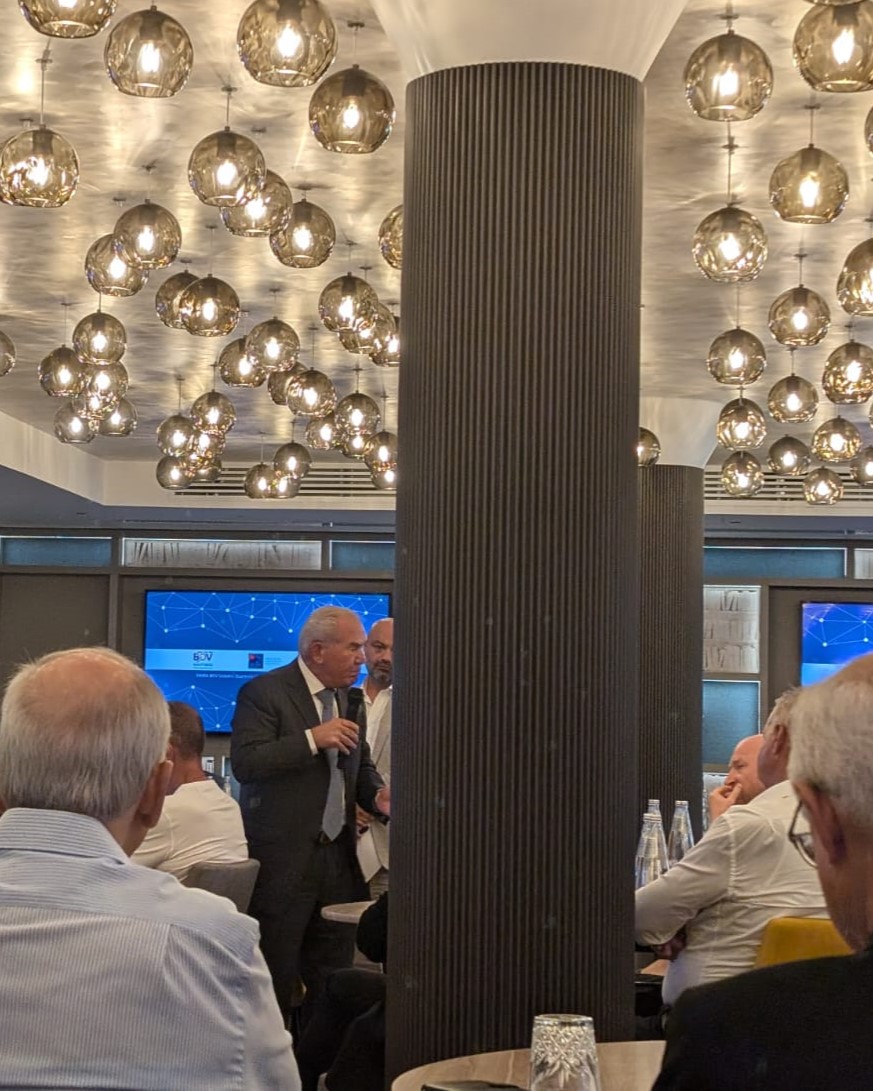Tony Zahra, President at the Malta Hotels and Restaurants Association (MHRA), has stressed the need to control incoming tourists and hotel developments, stating that Malta needs to shift from focusing on numbers to quality.
His comments came during the presentation of the MHRA Hotel Survey by Deloitte for the second quarter of 2024 (Q2 2024) on Friday (today). During the reporting period, tourist arrivals for Q2 2024 reached 998,000, surpassing 2023 figures, while guest nights also rose by 483,000 nights when compared to Q2 2023, in line with increased arrivals.
However, while tourism spending reached €850 million, 17 per cent higher than the comparable period in 2023, it was noted that tourists’ spending per capita has decreased. In fact, occupancy levels for five-star and four-star hotels experienced slight decreases. This suggests that the tourists coming to Malta are not looking to spend that much during their stay.
On Thursday, Malta International Airport (MIA) announced that it welcomed 4.1 million passengers in the first half of 2024, its best-performing first half to date. This represented an 18.4 per cent year-on-year increase.
In his address during the MHRA event, Mr Zahra said that while the numbers are good, the hospitality industry needs to move forward. He pointed out that it is concerning that Malta is shifting the profile of arrivals from family or elderly persons – who tend to spend more – to the younger generation.

MHRA President Tony Zahra during his address
“Being a small country, we have to get the tourists that contribute the most to the economy. We cannot take any more tourists, as it will lead to even more problems than we have right now. We really need to look at the numbers and the profile now, seeing if it fits with our vision for the economy,” he stated.
“What we do needs to benefit the Maltese,” Mr Zahra emphasised.
In order to work on addressing this, he said that Malta’s hotels have to first and foremost shift towards focusing on productivity, “getting more for less.”
“It is much easier to look at your costs and focus on bringing them down rather than trying to expand your sales,” he continued.
To better explain this, he used Switzerland as an example, saying that while it is one of the most expensive countries in the world, there are establishments that have 80 seats yet have two Swiss workers and still produce quality service.
“That is because they [Switzerland] don’t give out work permits like pastizzi. We [Malta] need to get our productivity up, and I keep telling Government that it was a bad idea to open our doors, as instead of thinking how we can improve productivity, we took the easy way out and saw how we can get money from outside of the country,” Mr Zahra affirmed.
One way that Government has aimed to tackle this issue is through the introduction of the skills pass, a new set of rules designed to ensure foreign workers in Malta’s hospitality and tourism sectors have the necessary skills to provide a quality service. Last May, it came into effect for workers who are getting a work permit for the first time. From 1st January 2025, those already in Malta will need to obtain a skills pass upon renewal of their work permit.
At one point during a panel discussion in MHRA’s conference, the focus turned to the skills pass, when one member of the audience said that the skills pass makes sense in principle, yet the economy is growing and “there are no locals ready to work in any industry, not just hospitality.” He added that as a result, Malta has to “forget about locals,” and instead hotels need to have foreign workers and help them.
Following this, Mr Zahra, seemingly frustrated with the audience member’s claims, said that Malta’s not getting any bigger, and the infrastructure is not keeping up.
“We have drainage coming out of everywhere. We have a hospital which cannot take the increased numbers. The whole of Malta is going up in flames because our distribution system isn’t working. Of course, we can fix mostly everything, but we can’t go on building more hotels and rooms, that is crazy,” Mr Zahra said.

MHRA President Tony Zahra (middle) during his intervention
“How are we going to handle more tourists? Are we going to have more drainage going into the sea and suffering from more power cuts?” he questioned.
He remarked that Government’s push to expand Malta’s economy in the way it has was a “crazy idea.”
“We now have to be clever to get out of this hole we are in. If we don’t, there won’t be a tourism industry left. We need more quality tourists,” Mr Zahra stressed.
MHRA Hotel Survey by Deloitte Q2 2024 results
During Q2 2024, Malta experienced a consistent increase in tourist arrivals, reaching 998,000, surpassing the figures recorded in Q2 2023 by 152,000.
Consequently, guest nights also rose by 483,000 when compared to the same period in 2023. This increase was registered both in collective accommodation (such as hotels and guest houses) and private accommodation (Airbnb and other rentals).
Tourism spending reached Tourism spending reached €850 million, a 17 per cent increase from the comparable period in 2023. This indicated that the strong tourism spending registered in Q1 2024 was maintained during the following three months. However, tourists’ average spend per capita in Q2 2024 decreased, signalling the increased pressure on tourists posed by inflation.
Occupancy levels in four- and five-star hotels decreased slightly. In the five-star category, this dropped from 79 per cent in Q2 2023 to 75.3 per cent in Q2 2024. For four-star hotels, this dropped by 0.9 percentage points to 86.9 per cent in Q2 2024.
The average daily rate (ADR) for five-star hotels increased by five per cent over Q2 2023, reaching €216.9 per room in Q2 2024. There was an even greater rise for four-star hotels, with the ADR amounting to €109.4 per room in Q2 2024, a 5.9 per cent increase over 2023 levels.
Main Image:MHRA President Tony Zahra
